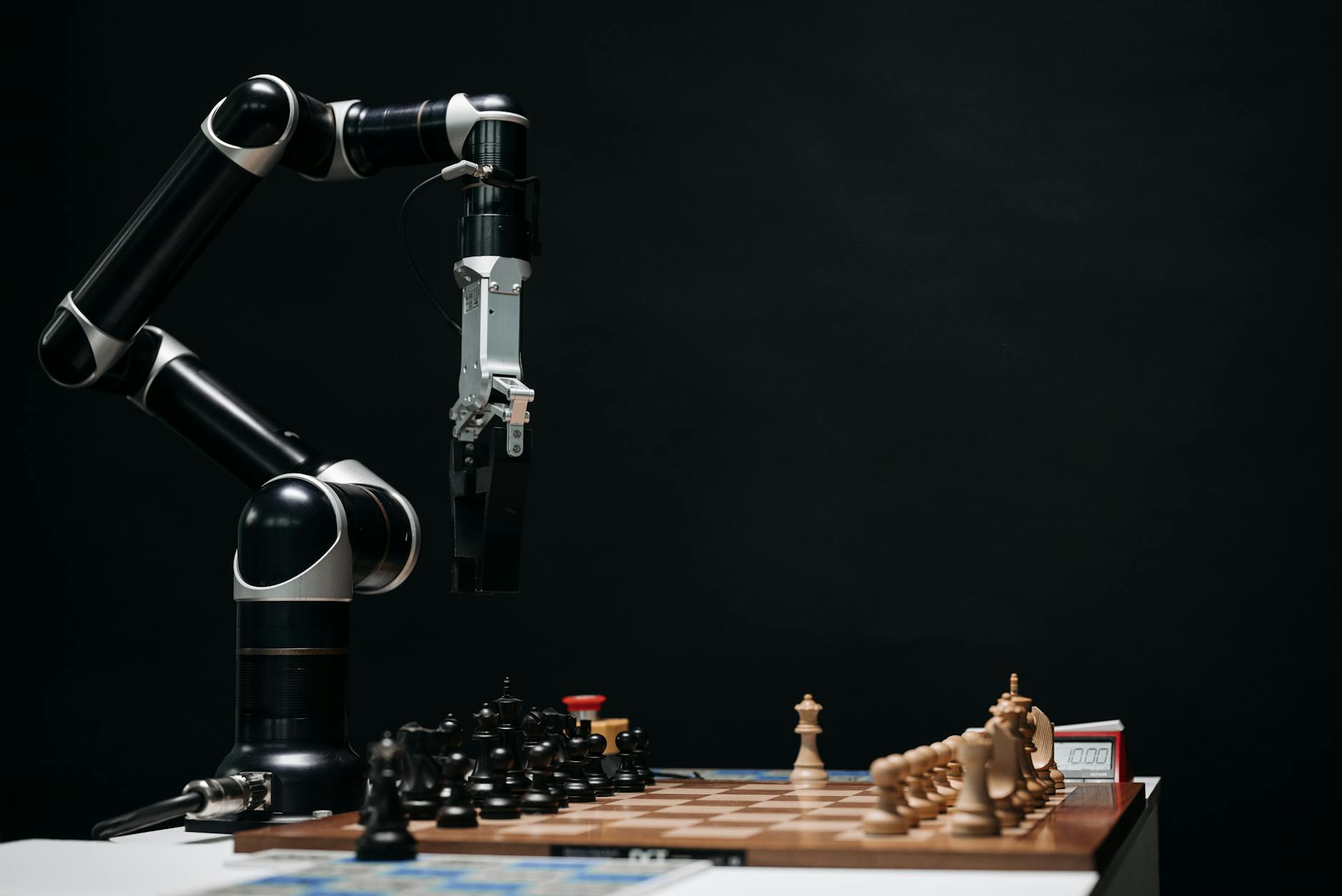Unveil the secrets of artificial intelligence with a captivating journey through its past and the exciting future directions it holds.
Table of Contents
Welcome to a journey through the fascinating world of Artificial Intelligence (AI). In this blog post series, we will delve into the past, present, and future of AI, exploring its origins, current applications, benefits, challenges, ethical concerns, and potential impact on society. Join us as we unravel the mysteries and possibilities of this transformative technology.
Introduction to AI
Artificial Intelligence, or AI, is a branch of computer science that focuses on creating intelligent machines capable of performing tasks that typically require human intelligence, such as visual perception, speech recognition, decision-making, and language translation. The goal of AI is to develop systems that can learn from data, adapt to new inputs, and perform tasks with minimal human intervention. As AI technologies continue to evolve, they are increasingly being integrated into various industries and transforming the way we live, work, and interact with the world.
Historical Context
The roots of Artificial Intelligence date back to the 1950s, with the pioneering work of researchers such as Alan Turing, John McCarthy, and Marvin Minsky. These early visionaries laid the foundation for the field of AI by proposing theories and developing algorithms that mimicked human intelligence. Over the decades, AI research has experienced significant advancements, leading to breakthroughs in areas such as machine learning, neural networks, and natural language processing. These milestones have propelled AI into the forefront of technological innovation and sparked a new era of possibilities.
Current Applications
AI technologies are now being deployed in a wide range of industries, from healthcare and finance to transportation and entertainment. For example, in healthcare, AI-powered systems are being used to diagnose diseases, predict patient outcomes, and personalize treatment plans. In finance, AI algorithms are helping to analyze market trends, detect fraud, and improve risk management. In transportation, AI is enabling the development of autonomous vehicles that can navigate roads and make decisions in real-time. These are just a few examples of the incredible ways in which AI is revolutionizing the world around us.
Benefits of AI
The potential benefits of Artificial Intelligence are vast and far-reaching. AI has the power to enhance efficiency, productivity, and decision-making processes in various industries. By automating repetitive tasks and enabling data-driven insights, AI can help organizations streamline operations and unlock new opportunities for growth. Additionally, AI technologies have the potential to tackle complex problems, accelerate scientific research, and improve the quality of life for individuals around the globe. From revolutionizing healthcare to optimizing supply chains, the benefits of AI are truly transformative.
Challenges and Ethical Concerns
Despite the promise of AI, there are also significant challenges and ethical concerns that must be addressed. One major concern is the potential for job displacement, as AI-powered systems automate tasks traditionally performed by humans. This raises questions about the future of work and the need for reskilling and upskilling programs to prepare individuals for the changing labor market. Additionally, there are concerns about the ethical implications of AI, including issues related to bias in algorithms, data privacy, and the accountability of AI systems. Addressing these challenges requires thoughtful consideration and proactive measures to ensure that AI is developed and used responsibly.
Future Direction of AI
Looking ahead, the future of Artificial Intelligence holds immense promise and possibility. AI technologies are expected to continue advancing rapidly, with innovations in areas such as deep learning, reinforcement learning, and computer vision. These advancements will enable new applications and capabilities, further blurring the lines between human and machine intelligence. As AI becomes more pervasive in society, it will be crucial to monitor its development, anticipate its impact, and shape its trajectory in a way that benefits humanity. By proactively addressing challenges and harnessing the potential of AI, we can pave the way for a future that is more intelligent, innovative, and inclusive.
| Time Period | Key Developments |
|---|---|
| Ancient Times | The concept of artificial beings and automata dates back to ancient civilizations such as Greek and Egyptian cultures. |
| 20th Century | The term “artificial intelligence” was coined in 1956 at the Dartmouth Conference, marking the beginning of AI research. |
| 1980s | The AI Winter occurred due to over-hyped expectations and under-delivered results, leading to a temporary decline in AI research. |
| Present Day | Advancements in machine learning, deep learning, and neural networks have significantly advanced AI applications in various industries. |
| Future Directions | Potential future directions for AI include advancements in explainable AI, AI ethics, and the creation of artificial general intelligence (AGI). |
Can Skynet Happen?
The concept of a sentient AI like Skynet, as depicted in the Terminator movies, raises intriguing questions about the potential risks and consequences of advanced AI systems. While the scenario of a malevolent AI taking control and posing a threat to humanity is a compelling narrative in science fiction, the likelihood of such a scenario happening in reality is a topic of ongoing debate among experts in the field. The key to preventing a Skynet-like scenario lies in setting clear boundaries and safeguards to ensure that AI remains under human control. By establishing ethical guidelines, implementing robust regulations, and fostering transparent dialogue about the implications of AI, we can navigate the potential risks and opportunities of this transformative technology.
The Role of AI in Society
As AI continues to evolve and permeate various aspects of society, its role in shaping the future is becoming increasingly significant. From enhancing education and healthcare to optimizing transportation and governance, AI has the potential to drive positive change and address pressing global challenges. By leveraging the power of AI to innovate, collaborate, and empower individuals, we can build a more resilient, equitable, and sustainable society. The key lies in harnessing the capabilities of AI responsibly, ethically, and inclusively, ensuring that the benefits of this technology are shared equitably and that its impact is guided by values of fairness, transparency, and accountability.
Conclusion
In conclusion, Artificial Intelligence represents a powerful and transformative force that is reshaping the world in profound ways. By examining the origins, current applications, benefits, challenges, and future directions of AI, we gain a deeper understanding of its potential and implications. As we navigate the complexities and uncertainties of the AI landscape, it is essential to approach this technology with a sense of curiosity, critical thinking, and empathy. By engaging in thoughtful conversations, fostering collaboration, and shaping AI in alignment with our values and aspirations, we can chart a course towards a future where AI serves as a force for good, enhancing human capabilities and enriching society for generations to come.
Frequently Asked Questions
What is Artificial Intelligence?
Artificial Intelligence (AI) refers to the development of intelligent machines that can perform tasks requiring human-like intelligence, such as learning, reasoning, and problem-solving.
What are the key benefits of AI?
AI can enhance efficiency, productivity, and decision-making in various industries, revolutionize healthcare, streamline operations, tackle complex problems, and improve quality of life.
What are the ethical concerns surrounding AI?
Ethical concerns related to AI include job displacement, bias in algorithms, data privacy issues, accountability of AI systems, and the need for responsible development and usage.
Can a scenario like Skynet happen in reality?
While the idea of a malevolent AI like Skynet is a captivating science fiction concept, experts debate whether such a scenario could occur in reality. Safeguards, ethical guidelines, and transparent dialogue are crucial to ensure AI remains under human control.


Recent Comments